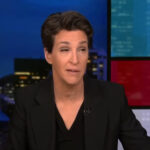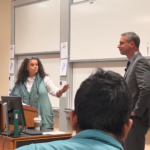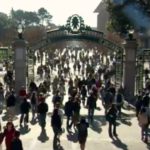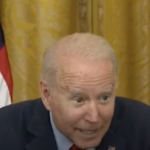Woke Literature Infects Public Schools
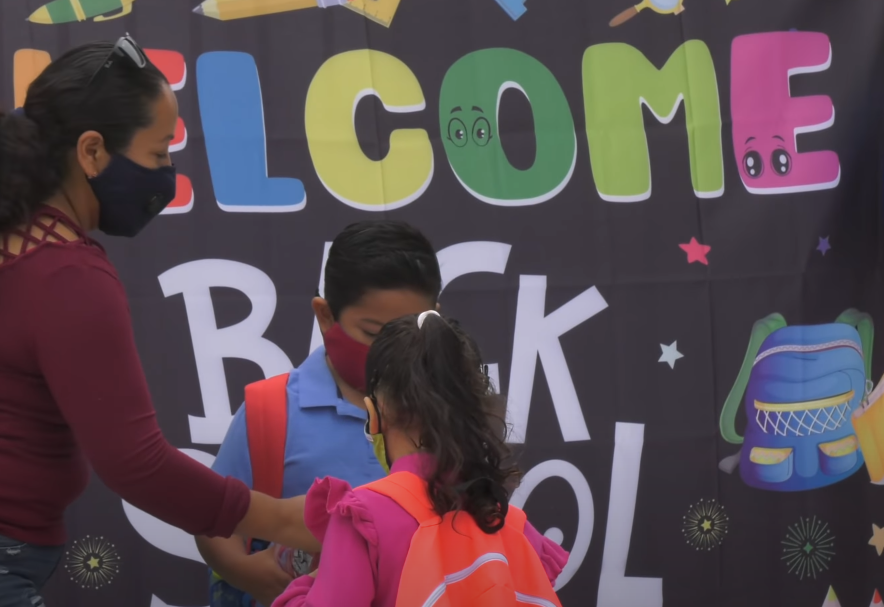
Each year, public school libraries face angry parents and school boards upset with the presence of reading materials they find objectionable. These attacks on specific books have included classics such as often-banned Adventures of Huckleberry Finn (for its repeated use of the n-word), Catcher in the Rye (for what in today’s culture are its mild references to sexuality and its vulgarity), and other literary works whose value and reputation, despite occasional challenges, have made them logical additions to a school’s reading list.
Just last month, for example, The Mukilteo School Board near Seattle voted unanimously to remove Harper Lee’s classic examination of racism, To Kill a Mockingbird, from the required reading list for ninth graders because, as the American Library Association has noted, the book includes “racial slurs and their negative effect on students, featuring a ‘white savior’ character, and its perception of the Black experience.”
Also last month, the McMinn County Board of Education in Tennessee made the troubling decision to remove the Pulitzer Prize-winning graphic novel about the Holocaust by Art Spiegelman, Maus, from the school system’s curriculum. In justifying its decision to remove the book, the Board claimed it was “because of its unnecessary use of profanity and nudity and its depiction of violence and suicide,” although the anthropomorphic characters in the novel are mice (Jews) and cats (Nazis), and the nudity in question referred, of course, to a naked mouse.
While parents and school boards have long questioned titles that some consider objectionable, inappropriate, indecent, or lewd, complaints from parents and school boards about offensive books currently seem to involve books about sexuality, and particularly including those with a focus on LGBTQ topics. In fact, an American Library Association report noted that “Most challenges to library resources in 2018 focused on materials and programs associated with issues of concern to those in the gay, lesbian, transgender, and queer communities, most notably drag queen story hours and books affirming transgender youth . . . .”
While the vigorous debate over race and the teaching of critical race theory (CRT) in public schools has garnered an enormous amount of attention, less visible but equally as troubling is the increased adoption of books whose language, subject matter, illustrations, and general tone are so sexually charged and so graphic that a school board’s concern about a drawing of a naked mouse or some off-hand swearing by Holden Caufield seems disingenuous at best and hypocritical at worst.
A whole collection of new titles has been published as part of a campaign to normalize extremes of sexual behavior, to expose even young students to discussions about sexuality and physical relationships, to advance tolerance for and acceptance of gay and even deviant lifestyles and behavior, and for a pervading attitude that anyone’s difference and uniqueness—no matter how obscure or aberrant—should be discussed and embraced by everyone. This is part of a wide campaign that educators have taken on as something they believe is their right and duty to promote and teach, resulting in a variety of what many think are inappropriate, even offensive books that have found their way into school libraries, reading lists, and classrooms.
Consider, as one example, Lawn Boy by Jonathan Evison, a coming of age book which the School Library Journal described as a “deceptively simple novel [that] takes on tough issues such as race, sexual identity, and the crushing weight of American capitalism.” Of course, the fact that “Mike Muñoz, the 22-year-old biracial (Mexican and white) narrator, has grown up dirt-poor with his hardworking waiter mother and his brother, who is developmentally disabled” makes this entire package irresistible to educators in the thrall of intersectionality, perfectly coalesced here with a poor, bi-racial gay person victimized by capitalism and white supremacy.
But it is the language that is troublesome here, not the oft-repeated critique of American society. At a September meeting of the board of the Leander Independent School District in Texas, the vulgarity and blatant sexuality of the book was exposed by a concerned parent who read passages from it and questioned why her child had found a book like this in his school library.
As a sample of some of the sexual descriptions in the book, she read such passages as, “Not that it really matters, in fourth grade at a church youth group meeting out in the bushes, I touched Doug Goebbels’ dick, and he touched mine. In fact, there was even some mouths involved.”
Another passage, which the parent accurately suggested was an example of grooming of children to make them likely to want to participate in sexual activity, read, “What if I told you I touched another guy’s dick? What if I told you I sucked it? I was ten years old, but it’s true. I put Doug Goebbels’ dick in my mouth. I was in fourth grade, it was no big deal. He sucked mine too. And you know what, it wasn’t terrible.”
Perhaps when a gay, bi-racial Mexican character is the subject of a book any language and graphic description are acceptable, the only explanation for the passages like this one in which the most intimate childhood recollections are described: “He talked about all times at the church but never mentioned our penises, or the fact that he never said ten words to me after our little foray in the bushes. Not a single reference to holding or tugging or sucking dicks. All I could think about while he was chatting me up, was his little salamander between my fourth-grade fingers, rapidly engorging with blood.”
Holden Caufield’s musing in Catcher in the Rye seems quite quaint compared to the language of Lawn Boy, “If you want to know the truth, I’m a virgin. I really am,” he says. “I’ve had quite a few opportunities to lose my virginity and all, but I’ve never got around to it yet. Something always happens.” Yet, one of the complaints about Salinger’s work is that it is profane and overtly sexual.
In January, the Board of Education of the Wentzville (Missouri) School District debated whether The Bluest Eyes, a novel by the late Toni Morrison, should be retained in the library collection after complaints were made about the book’s depiction of “pedophilia, incest, rape.”
Literature, including, of course, great literature, has often dealt with difficult and controversial topics as far back as Oedipus. But whether The Bluest Eyes, with this description of a pedophile’s yearning for sex with children, is a good choice for a school library is debatable. “He further limited his interests to little girls. They were usually manageable . . ,” it reads. “His sexuality was anything but lewd; his patronage of little girls smacked of innocence and was associated in his mind with cleanliness.” Later, in an attempt to expiate himself of his sins, the pedophile deludes himself by suggesting, “I work only through the Lord. He sometimes uses me to help people.”
And his professed innocence and self-awareness do not diminish the repulsive attraction depicted here: “The little girls are the only things I’ll miss. Do you know that when I touched their sturdy little tits and bit them —just a little—I felt I was being friendly?—If I’d been hurting them, would they have come back? . . . they’d eat ice cream with their legs open while I played with them. It was like a party.”
The language of this book also includes some of the same words condemned in Huckleberry Finn and To Kill a Mockingbird, but this school board condoned them in this instance, suggesting in their review that “This novel helps the reader step into and understand 1941 (pre WWII, pre civil [sic] rights movement), small town black culture in a way no textbook can do.”
“With a violence born of total helplessness, he pulled her dress up, lowered his trousers and underwear,” one violent, misogynistic passage reads. “‘I said get on wid [sic] it. An’ make it good, [n-word], Come on [c-word]. Faster. You ain’t doing nothing for her.’ He almost wished he could do it—hard, long, and painfully, he hated her so much.”
The Left’s current obsession with gender fluidity and gender dysphoria has, of course, made its way into children’s books as well, as activists determined to promote transgenderism are eager to bring that discussion into schools. One such book, Felix Ever After, is “a revelatory YA novel about a transgender teen grappling with identity and self-discovery while falling in love for the first time.”
KTTH-AM host Jason Rantz revealed that in a display for Pride Month, Zeiger Elementary School in Puyallup, Washington included Felix Ever After, a book that focuses on “top surgery.” The book, according to Rantz, is “a book with prolific drugs, sex, and vulgarity,” not to mention the fact that it promotes a controversial sex-altering surgery performed here on a minor. On top of that, the book is replete with swears and obscenity. “The F-word is present in this book 66 times in the first 90 pages, local activist Dawn Land said at a recent board meeting. “Considering that a movie that [says] the F-word more than once is automatically rated R, this book should not be anywhere near any school in this district.”
Apparently, if you are a “Black, queer, and transgender teen who faces transphobia,” you can swear with impunity, just as a gay, bi-racial Mexican character can engage in gay sex and describe oral sex sessions with another child and that content is acceptable because of the victim status of the books’ subjects.
Another example of intersectionality unbound can be found in All Boys Aren’t Blue, a book which “covers topics such as gender identity, toxic masculinity, brotherhood, family, structural marginalization, consent, and Black joy,” “weav[ing] together the trials and triumphs faced by Black queer boys.”
Why the subject of “Black queer boys” is more relevant to and has more educational value than some other works of literature that seem to be so carelessly and thoughtlessly tossed aside is not clear, other than the fact that a character with so much victim status is irresistible to woke, virtue-signaling educators who wish to promote their supposed tolerance and insight on school children. Perhaps that is why seventh-graders in Olathe, Kansas, as one example, were exposed to the language in this book, including such passages as, “He reached his hand down and pulled out my dick. He quickly went to giving me head. I just sat back and enjoyed it as I could tell he was, too.” “He didn’t know I was a virgin,” it continued, “and I did my best to act dominant like my favorite porn star.”
“For the first few minutes,” the narrator recalls in another section, “we dry humped and grinded. I was behind him with my stomach on his back as we kissed . . . he pulled out some condom and some lube . . . . I had never done it before . . . I had one point of reference, though, and that was seven-plus years of watching pornography. Although the porn was heterosexual, it was enough of a reference point to get the job done.”
Something is clearly amiss when school boards and teachers purge their reading lists and libraries of classic works of fiction that have proven educational value and merit, even if they are peppered with occasional swears or slurs, including the n-word, but words that are appropriate to the narratives and even helpful in making the point of the stories. If an illustration of a naked mouse in a significant novel about the Holocaust is considered too controversial, but pedophilia, rape, and graphic depictions of oral sex by minors are somehow acceptable because the characters are members of protected identity groups, then the wrong standards are being applied to the literary works schools adopt for teaching its students.
Great literature is still worthy even if it sometimes offends, but unworthy books do not become literature merely because they are offensive, and educators should know the difference.

